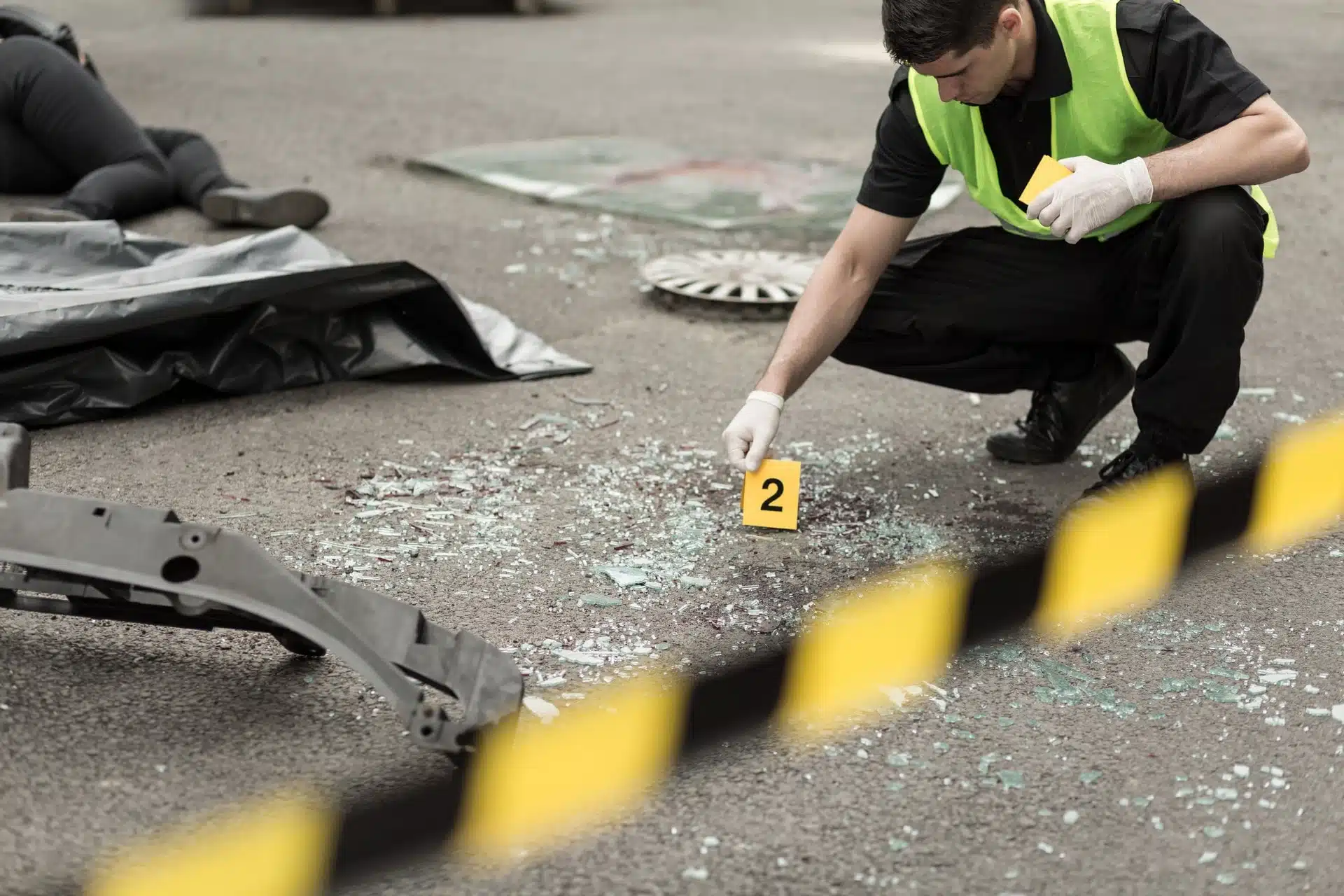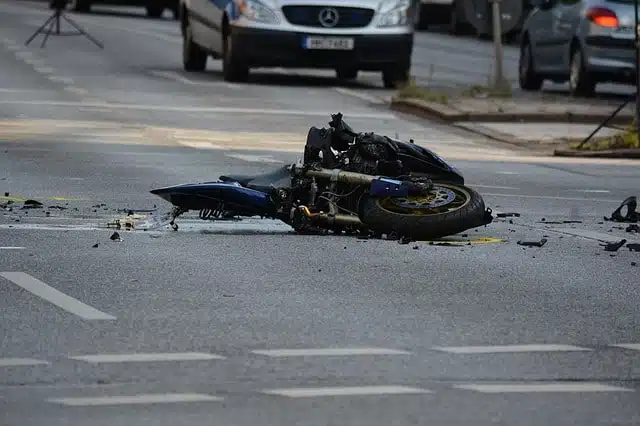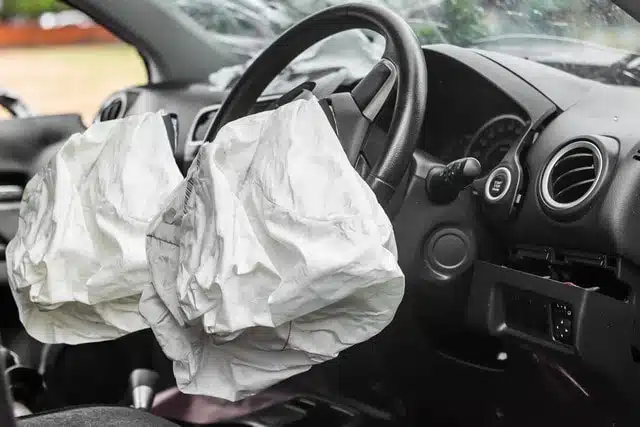
How to Prove Wrongful Death: Key Legal Steps and Considerations






Understanding Wrongful Death: Legal Support From Sabbeth Law
Wrongful death occurs when someone dies due to another party’s negligence. To prove a wrongful death claim, we need to show that the defendant had a responsibility to care for a person but failed in this duty and that this failure directly caused that person’s death, resulting in damages. The legal process can be complex, as it involves gathering evidence and adhering to legal requirements.
Proving wrongful death not only holds the responsible party accountable but also helps alleviate the emotional and financial burdens on the family. It’s important to be aware that in Vermont, a wrongful death claim must be filed within two (2) years from the time of death or its discovery.
At Sabbeth Law, we work to ensure that those responsible are held responsible and that families receive the compensation they deserve during such difficult times. Each case requires a unique approach, with attention to detail and evidence. Our experience includes tackling personal injury claims and understanding the nuances of product liability. We help families piece together the evidence needed for a robust case. Contact a Vermont wrongful death lawyer today for personalized legal advice.

Who Can File a Wrongful Death Claim in Vermont?
In Vermont, it is crucial to understand who has the standing to file a wrongful death claim. The law (14 V.S.A. § 1492) dictates that these claims are filed by the personal representative of the deceased’s estate. This individual plays a central role in initiating the legal proceedings.
Wrongful death claims aim to compensate those affected by the loss. These primarily include the immediate family members such as the spouse, children, and sometimes parents of the deceased. The compensation derived from a wrongful death claim serves to support these surviving family members and address their suffering and financial loss.
Our collective understanding recognizes that the estate’s executor or personal representative oversees the distribution of any settlement. They ensure that the heirs receive what they are entitled to under the law. Furthermore, putative spouses, or individuals who had a substantial and significant relationship with the deceased but were not legally married, may also have claims. Details regarding who exactly benefits and how much they can receive may vary, and legal assistance may be required specific to each case.
Speaking with a wrongful death attorney may help you determine whether you have a wrongful death claim against the potential defendant.
Contact UsKey Elements of a Wrongful Death Claim
- Duty of Care: In a wrongful death case, establishing the duty of care is fundamental. This involves proving that the defendant owed a legal obligation to the deceased. For example, a driver has a duty to follow traffic laws to keep other road users safe.
- Breach of Duty: This arises when the obligation is not met. A classic example is a distracted driver running a red light, thereby failing to uphold their duty of care. Such actions can lead to catastrophic outcomes.
- Causation: The breach must directly connect to the wrongful death. It’s crucial to show that the breach directly caused the fatality. If medical records show that the car accident led to fatal injuries, causation is established.
- Damages: Tangible and intangible losses were suffered by the deceased’s family. This covers financial losses like medical bills and funeral costs, along with emotional suffering. Calculating these damages can involve complex financial assessment.
Our team at Sabbeth Law plays a critical role in gathering and presenting evidence. This includes witness testimonies, accident reports, and adept evaluations, which help build a compelling case.
Proving Liability in Wrongful Death Cases
Proving liability in wrongful death cases hinges on demonstrating a defendant’s negligence or misconduct. Central to this is showing a breach of duty of care, or the legal obligation to act in a manner that avoids harming others. Examples include medical malpractice and car accidents.
The intentional act or gross negligence must be clearly evident. Elements such as causation and the wrongful act are pivotal, underscoring the direct link between the action and the death.
Several types of evidence are crucial in these cases. Medical records can establish the cause of death, while autopsy reports provide further insights. Witness testimony, such as accident reconstruction or medical professionals, is valuable in illustrating the extent of misconduct. Documentation of financial and emotional losses, like lost income, complements the evidence.
At Sabbeth Law, we believe that the timely gathering of evidence is crucial. Swift action ensures that no vital detail is overlooked. We work to gather necessary documentation promptly, aligning with best practices to uphold the case. Our efforts include partnering with experts to reinforce evidence and testimony.
Contact UsCompensation Available in Vermont Wrongful Death Cases
In Vermont, wrongful death cases can lead to various types of compensation aimed at helping the deceased person’s family or estate manage the financial and emotional impact.
- Economic damages: These are pivotal, covering medical bills, lost wages, and funeral expenses. These are quantifiable losses that can significantly alter the financial stability of the family.
- Non-economic damages: Pain and suffering and loss of companionship also play a critical role. These capture the emotional toll and the void left by the deceased’s absence. We understand the importance of these losses and aim to represent them accurately in a wrongful death settlement.
- Punitive damages: This may also be available in cases of gross negligence, serving as a deterrent against egregious behavior.
Our goal is for you to get maximum compensation by tapping into our extensive knowledge and experience in handling these challenging cases. The various types of damages ensure that families in Vermont receive the support they need during such a difficult time, and our approach is always custom-fit to the unique circumstances of each case.

Challenges in Proving Wrongful Death in Vermont
Proving wrongful death can be complex. A crucial hurdle is the burden of proof, where plaintiffs must show that the death resulted from another’s negligent or intentional conduct. This requires comprehensive evidence to substantiate claims and align with the Vermont wrongful death statute.
Another significant challenge involves the standard of proof, which demands clear and convincing evidence. Unlike in criminal cases where guilt must be established beyond a reasonable doubt, civil wrongful death actions rely on a preponderance of evidence. An experienced wrongful death attorney can help ensure all evidence aligns with these standards.
Time constraints can complicate matters further, with the statute of limitations typically requiring action within two years of discovering the wrongful death. Prompt action is essential to meet these legal deadlines effectively.
Proving causation also presents obstacles. It’s essential to link the death directly to the defendant’s actions or negligence convincingly. This often involves navigating complex medical or technical information and disputing alternative explanations.
The damages amount is frequently contested, encompassing medical expenses, lost earnings, and non-economic factors like pain and suffering.
Resistance from insurance companies also adds another layer of complexity. They may attempt to minimize payouts or dispute claims. We leverage our experience to negotiate effectively and litigate as needed to overcome such resistance.
In facing these challenges, the knowledge of a seasoned wrongful death attorney is invaluable. Our experienced team navigates these complexities, ensuring a thorough and strategic approach to each case.

Why Sabbeth Law Is the Right Firm for Your Wrongful Death Case
Wrongful death cases require a deep understanding of legal nuances. Our team of personal injury lawyers is experienced in Vermont laws and has substantial experience handling these sensitive cases. This ensures that our client’s needs are met effectively.
Our firm focuses on providing personalized attention. We understand the life-changing impact a wrongful death can have on families. Each client’s story is unique, and we take the time to understand these personal narratives in depth.
We invite you to reach out for a free consultation and legal evaluation to explore your options. Our deep knowledge of wrongful death cases in Vermont positions us as a competent partner in seeking justice.
Take the First Step Toward Justice With Sabbeth Law Today!
When faced with the heartbreaking loss of a loved one, knowing whether you have a wrongful death claim becomes crucial. A wrongful death case involves complex legal processes and emotional challenges. Our team at Sabbeth Law understands the intricacies of these cases and the deep impact on those left behind.
We begin by listening to you, learning about your family’s unique circumstances, and understanding how your loss affects your daily life. This compassionate approach helps us accurately represent your story, both in and out of the courtroom. We focus on every detail that might strengthen the claim.
Why Choose Sabbeth Law?
- Practical experience
- Extensive legal network
- Dedicated commitment
With our experience, we can help you navigate complex cases effectively. Our team is experienced in various industries and federal safety regulations, ensuring a comprehensive approach to each case. We coordinate with professionals to uncover all pertinent details.
Seeking justice requires seasoned advocates. We invite you to take a critical step—explore your legal options with us. Let’s discuss the wrongs you and your loved ones have endured and examine potential avenues for resolution. Contact us for a consultation to discuss your case in depth.
Contact UsPractice Areas
Client Testimonials
LUKE PARMENTER“Immediately after my son’s injury at work, he was treated poorly. Over the course of the next few days it became even worse, so I called Mike and he and Crystal have been absolute lifesavers during the process. Mike is not your typical stuffed suit lawyer who only cares about the bottom line he genuinely cares about his clients and his assistant Crystal is beyond amazing! My thanks to you both!”
Client Testimonials
“Immediately after my son’s injury at work, he was treated poorly. Over the course of the next few days it became even worse, so I called Mike and he and Crystal have been absolute lifesavers during the process. Mike is not your typical stuffed suit lawyer who only cares about the bottom line he genuinely cares about his clients and his assistant Crystal is beyond amazing! My thanks to you both!”
LUKE PARMENTER
“I could never ask for a better attorney, to fight for me, to believe in me, and have faith in me, than what I found in Mike Sabbeth, He doesn’t treat you like a client, he treats you as if you are one of his own family members, He will fight for you, with all he has, and is ALWAYS up front and honest with you about everything!”
SANDRA DRUGE
